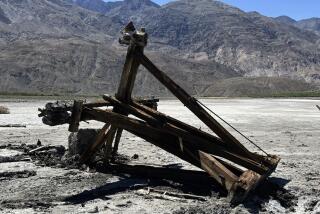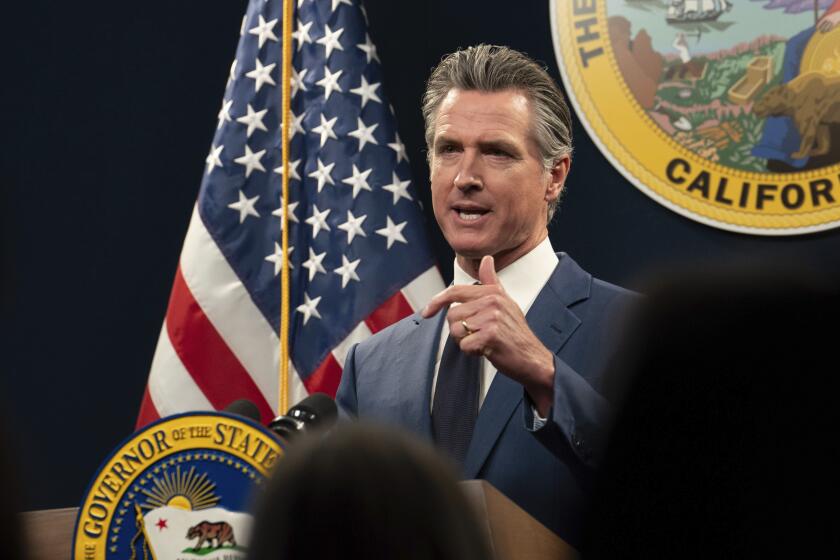Oakland Truckers Continue Protest
Independent truck drivers remained idle in Oakland, slowing the flow of freight from the fourth-largest U.S. port, while drivers returned to work in Los Angeles and Long Beach after a one-day protest over record diesel fuel costs.
About 150 drivers who own their own trucks gathered in front of the Port of Oakland, refusing to haul cargo for a second day, said Chuck Mack, the port director for the International Brotherhood of Teamsters, which is following the protest by the independent contractors. Port workers said the action was having an effect on the flow of goods from Oakland.
“There’s very little truck traffic, which means there’s very little cargo traffic coming in or going out,” said Midori Tabata, a spokeswoman at the port. “So, our operations have been affected.”
Diesel fuel prices hit a record high of $2.36 a gallon in California on Saturday, according to the Automobile Assn. of America.
California has among the highest motor fuel prices in the nation, in part because of the special blends the state uses to curb air pollution.
On Friday, only about 15% of California’s 12,000 independent truck drivers went to work, slowing traffic at ports in Oakland, Long Beach and Los Angeles, according to the California Trucking Assn. and port workers.
In addition to hobbling port traffic, truckers also briefly blocked the Santa Ana Freeway in Commerce and slowed traffic on the Harbor Freeway. About 400 people attended a protest rally at Banning Park in Wilmington, where drivers at one point streamed onto Pacific Coast Highway.
Drivers say they want their rates raised by at least 30%. The trucking association, a Sacramento trade group, has pressed for the state to allow the use of fuel made for other states.
Drivers returned to work in Los Angeles. At Los Angeles and Long Beach, the two busiest ports in the U.S., trucks were ferrying goods at a typical pace, representatives of the ports said. More than $200 billion in goods were shipped through the two ports in 2002.
“It looks like we’re back to normal,” said Art Wong, a spokesman for the Port of Long Beach.
Mack, the Teamsters official, said the drivers in Los Angeles decided to return to work after forming committees that would discuss their grievances with the freight companies.
Mack, who spoke by cellphone from the scene of the Oakland protest, said it was unclear how long the drivers there would refuse to work.
The Teamsters union didn’t organize the protests, he said.
“It’s just an indication of how serious the fuel prices are for these guys,” he said.
More to Read
Start your day right
Sign up for Essential California for news, features and recommendations from the L.A. Times and beyond in your inbox six days a week.
You may occasionally receive promotional content from the Los Angeles Times.






